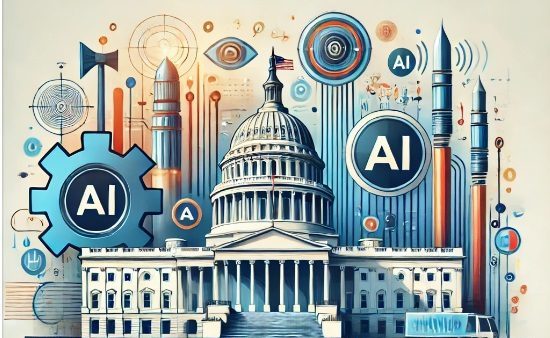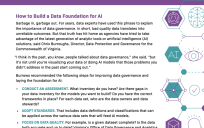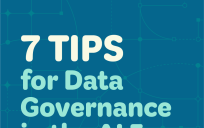Artificial Intelligence (AI) is increasingly being adopted by governments worldwide as a tool to enhance public services, streamline operations, and drive innovation. By automating routine tasks, improving decision-making processes, and providing innovative solutions to complex problems, AI has the potential to transform government operations and make them more efficient and effective.

Understanding AI in Government
At its core, AI refers to the simulation of human intelligence in machines designed to think, learn, and solve problems like humans. In the context of government operations, AI can be used to automate repetitive tasks, such as processing forms and responding to inquiries, which frees up human resources for more complex activities. For example, AI-powered chatbots can handle a large volume of citizen inquiries, providing quick and accurate responses, thereby enhancing citizen engagement and satisfaction.
Current Applications of AI in Government
One of the most prominent applications of AI in government is in data analysis and predictive analytics. Governments collect vast amounts of data across various sectors, including health, transportation, and security. AI can analyze this data to identify patterns and trends, enabling governments to make more informed decisions. For instance, predictive analytics powered by AI can help in forecasting economic trends, detecting fraud, and managing resources more effectively.
Another significant application is in public safety and security. AI technologies are being used for surveillance, monitoring public spaces, and even predicting and preventing crimes before they occur. In healthcare, AI is helping to improve patient care by analyzing medical data to predict disease outbreaks and optimize treatment plans.
Simplifying Complexity With AI
The complexity of government operations often poses challenges in service delivery. AI simplifies these complexities by providing tools that streamline processes and improve efficiency. For example, robotic process automation can automate complex workflows, reducing the time and effort required to complete tasks. AI can also assist in managing large-scale projects by providing real-time data and insights that help in monitoring progress and making necessary adjustments.
Moreover, AI can help in bridging communication gaps within government agencies and with the public. Natural language processing enables AI systems to understand and respond to human language, making interactions with government systems more intuitive and user-friendly.
The Road Ahead
As governments continue to adopt AI, it is crucial to address the challenges that come with it, such as data privacy, security, and ethical considerations. Developing robust policies and frameworks to govern the use of AI in public services is essential to ensure that AI is used responsibly and effectively.
In conclusion, AI holds the potential to simplify the complexities of government operations, making them more efficient, transparent, and responsive to the needs of citizens. By leveraging AI, governments can improve service delivery, enhance decision-making, and foster innovation in ways that were previously unimaginable.
Dr. Rhonda Farrell is a transformation advisor with decades of experience driving impactful change and strategic growth for DoD, IC, Joint, and commercial agencies and organizations. She has a robust background in digital transformation, organizational development, and process improvement, offering a unique perspective that combines technical expertise with a deep understanding of business dynamics. As a strategy and innovation leader, she aligns with CIO, CTO, CDO, CISO, and Chief of Staff initiatives to identify strategic gaps, realign missions, and re-engineer organizations. Based in Baltimore and a proud US Marine Corps veteran, she brings a disciplined, resilient, and mission-focused approach to her work, enabling organizations to pivot and innovate successfully.





Leave a Reply
You must be logged in to post a comment.